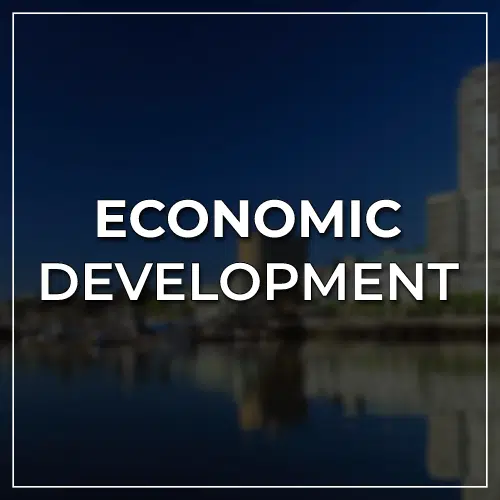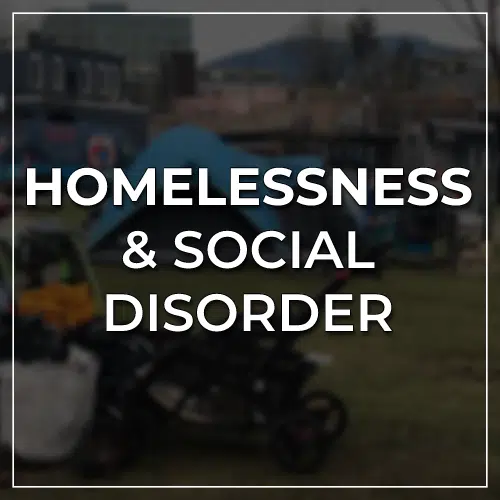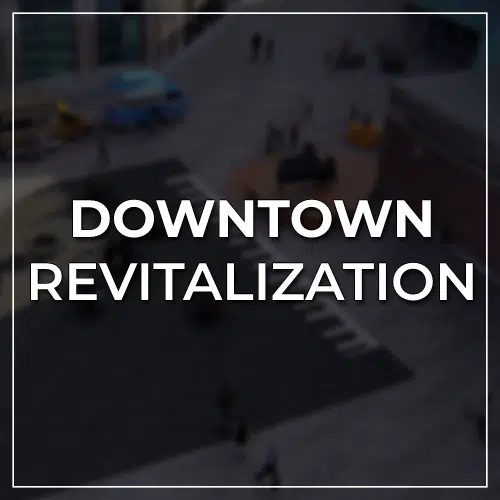Additional Comments
We are at record numbers of new builds in Nanaimo and have a significant increase in rental units. We are the 5 th fastest growing City in the country.
I look forward in finding out what more can be done
We are seeing the largest build of housing in our history. We are building mostly rental units and those haven’t been build for decades. Large apartment buildings and developments are being built all over the city.
High end housing and units for armchair landlords
I’ve spoken to many people alarmed by the pace of change in Nanaimo. Some folks feel it is changing too fast while others lament the speed of development approvals as too slow. We need to find ways to greenlight well built affordable housing.
In the past several years, the city has set records in the number of housing units approved for development. Despite the record volume, more capacity and change in culture are needed in our permitting process to increase volume and reduce permitting times to encourage even more development through quicker and more predictable processes. We can encourage more housing development in Nanaimo and achieve a more affordable and environmentally responsible city by:
-Expanding the secondary suite bylaw to allow more suites in a wider range of circumstances
-Pre-zoning appropriate land parcels for affordable housing.
-Aligning zoning bylaws with city plan density targets.
-Decreasing building permit times by increasing professional reliance and developing a more solution-focused culture.
-Encouraging the development of family-oriented units.
No. I have served on a Development Application Panel when previously a Councillor in Australia. Development approvals and building inspection process in Nanaimo is vastly backlogged and far too slow. This is impacting housing supply. The RDN recently received $457,000 grant funding to improve its development application processing to make the processing more efficient. Nanaimo needs to take similar steps to dramatically improve efficiency.
The adoption of the new Official City Plan is a disaster and had very little thought put into it. This economic model has not been proven anywhere so I cannot understand why this current City Council would pass this? It is the responsibility of our City Council to use proven techniques when putting such an important policy in place. This city has now become a “guinea pig” for this economic model. I leave you with this thought. I still remember how the building codes were pushed to be first to implement new policies and we had the leaky condo issues. This was an irresponsible move of the current Council to put this City in that position. We do not know what the consequences of this action might be.
In June we passed $319 million dollars in permit approvals, many of those for housing. Nanaimo continues to be a good place to invest with major housing developments in the works right across the city.
see previous answers
If you look at the value of building permits over the past four years, Nanaimo has broken records.
Nanaimo is going through an extraordinary building boom right now with a large number of units being built. But supply is still not meeting demand as more people move to the region. More need to be done to make the building and development permit process more efficient and expedient.
The current vacancy rate in Nanaimo is 1%. A healthy vacancy rate is 5%. There are over 600 homeless people in Nanaimo and thousands more who are precariously housed and on the verge of homelessness. The cost of housing both for purchase or rent has skyrocketed and Nanaimo has become unaffordable. The city must do more to address this crisis. The City can and should be purchasing land for affordable housing projects and working with non-profit housing organizations to build more affordable and supportive housing units. The city should be zoning for affordable housing. The city should be encouraging the development of coop housing in the community. The city needs to press senior levels of government to provide more resources for affordable housing in the community.
Yes, we have a lot more options for condominiums and apartments BUT not as much in the way of single family homes, duplexes, townhouses and senior complexes including long-term care options. I also think we need more options for housing downtown to create more of a work/life balance and building a walkable community. So there are gaps and we need to keep working in this area.
Based upon the many projects currently in Constructio….a lot is going on, and shortly a bump in housing will occur. What needs to follow is the proper follow up and research to see how this has affected to housing issue in Nanaimo. Is it making a difference? Is it making it more affordable in reality? If it isn’t then we have to do the homework to understand the deficiencies and determine what changes and corrections need to be made to improve the outcome, to satisfy the needs of the community.
I think we need to be doing these things quicker.
City been taking extra long time in issuing building permits and rezoning land
Yes, our housing developments are on track for the busiest year in our history. Housing has been encouraged, as our population growth demands it, and it is market-driven. We have attracted a record number of housing developments.
While I agree, I again want to reiterate that I do disagree with the lack of green space available.
I see a great deal of Construction in Nanaimo going on, so I would say this is an accurate statement as far as it goes, though I imagine it has more to do with Canada’s population growing, and a large number of people from Vancouver who can’t afford Housing in Vancouver, living in Nanaimo, and either working from home in Nanaimo, or Commuting to Vancouver several times a week.
What has happened in Vancouver, is what will happen in Nanaimo, and is the natural process of human population growth. As population increases, property becomes increasingly expensive, the wealthier members of Society occupy the shrinking availability of property, less affluent people are forced to move further away from the City or move away from the City altogether.
Who can afford to live in downtown San Francisco? How about downtown New York? Nanaimo is becoming the “suburbs” for affluent, but not that affluent, Vancouverites. Additionally Nanaimo, like all of Southern BC is becoming a popular destination for Immigrants and Wealthy Foreign Businessman who push up the value of Property.
Naturally this results in less affluent Canadians competing for less available property. Other Cities will grow and become “Nanaimo’s” for the less affluent.
Additional Comments
I think an increase og multi family housing units are an important step. I would like to see an increase in 3 bedroom apartments as they are needed for families, think we also need to look at patio homes which many of our Seniors want. Many seniors I spoke to would like to downsize but they want single level homes and do not want to live in condos or apartments. This would open more family homes.
I’ve noticed that this appears to be the pattern with a lot of the developments lately, it is a positive move.
In order to meet the population demands that we are expecting to see by 2040 multi-family units is going to be how that demand is met. The new City Plan will be encouraging more and denser development around the 5 Urban Centres.
All housing types are required. However, there is capacity and need for additional multi-family housing units, especially on transportation corridors.
Condos and most housing are build for BIG PROFIT SAFE AFFORDABLE LIVING IS AN ESSENCIAL and must not be for profit that’s the problem
I think the solutions exist across all housing types but agree that we will need to build more multi-family housing to meet demand.
I believe that multi-family housing units are a big part of the solution to Nanaimo’s housing crunch. Another important element is the allowance of more secondary suites, and support for more row and townhouses.
Cities require various housing options, including apartments and detached dwellings.
Densifying through these kinds of developments is a key component of the city’s work. These housing forms are typically more affordable and drive further community investment in coffee shops, restaurants and the arts. The concept of the missing middle, whereby the stock is so low that middle income earners are bumping low income earners from the market, is real and at play in our community. The more stock we have (within reason) the better off we are and these building forms are a great way to increase our stock.
It helps but see previous answers.
I am not a housing or building expert. However, densification of population does lead to efficiencies in the development and use of infrastructure – roads, water and sewer services, transportation.
These developments and properties often exceed the affordability of those with medium to low incomes. Affordability is a primary issue.
Yes, we need density in our urban areas, walking distance to amenities, and close to transit.
We need more multi-family housing units, such as apartment buildings and condo developments to meet the demand for housing. There is a need for more urban densification and infill and these are the right types of housing units for densification. Secondary suites, laneway houses, row houses and townhouses are also viable solutions to meet demand.
We need to ensure that affordable units are part of the new housing mix through inclusive zoning that requires developers to include affordable units in their projects or pay into a reserve fund for the construction of affordable units elsewhere.
Certainly in the short term it made a big difference but we need to keep going. Rents are still high and housing prices are still rising. I’ll say it again, we still need more single family homes, duplexes, townhouses and senior complexes including long-term care options. I also think we need more options for housing downtown to create more of a work/life balance and building a walkable community. There are gaps and we need to keep working in this area.
In any community, a balance is required. If we want to be a mini Vancouver with a growing high density factor, that’s one thing, but people move here to mostly get away from that. We need a balance of mixed housing, businesses, amenities and services. We need a community that maintains its attractiveness and appeal long after residents have moved here.
In my opinion, this is their answer to building many places to live in a quick time. But what gets left behind? Quality? Craftsmanship? Pride? Aren’t those important?
Yes as many cant afford houses anymore.
Apartment buildings and condos are part of the solution to the housing crunch, but not the primary solution. Young families need multi-bedroom affordable homes, while students and some seniors need small secondary suites. All types of housing must be looked at.
I would rather see more apartments than more houses with no green space.
The Free Market will dictate what is built. People always want to live in the best property they can afford. With that in mind, cities always need workers who are paid less than Executives and still need Housing. As such less expensive housing in the form of Multi-Family dwellings like Condos and Apartment buildings will be built.
The City can Zone for Higher Density developments, but it will do so to cater to the Economic and Financial capabilities of its Residents.
Politicians can climb on Pedestals and tear the shirts and pull their hair declaring in voices full of care and conviction that they will make sure more “Affordable Housing” is built, that Housing is a Right! and everyone deserves to have quality shelter. This all sounds wonderful, but it doesn’t reflect the reality of Human Nature and Politicians know this.
Multi-Family dwellings will be built as a matter of course, of Economic drivers. Developers build the most profitable structure on the property they own. That is human nature. The real solution is an improved Economy and improved Education and Wealth Capabilities of the population. People need superior Education, to gain superior Employment, and Wealth for better housing.
Additional Comments
I do not believe there have been many short term rentals returned to the rental market. When you go on the Air BNB and VRBO sites the numbers have not changed significantly since the regulations came into affect. When the survey was conducted some owners said if they could not use their condos or homes for short term rentals they would sell so in that respect there may have been a return to the housing market. Many people have suites in their homes and have chosen not to rent them due to issues with the Landlord Tenancy Act. I have requested staff try to confirm how many suites are not being rented out.
Airbnb suites can help the homeowner make some revenue but it does have negative effect on the limited availability in the rental market so local regulations are needed.
The Sort Term Rental bylaw passed by council this year was not fully what I wanted to see but it was a step in the right direction. I raised the issue recently about the number of STR’s that are not in compliance with the bylaw however it was finally decided to wait a full year with the bylaw in force before we do a review. Personally I think being proactive on STR’s that are not in compliance is the way to go. We shall see in April of next year.
No. The amount of units that fall under the new regulations are minimal. The cities focus should be elsewhere to have a more meaningful impact on creasing supply and provide people with homes.
Theoretically, yes. Are the regulations being effectively communicated and enforced to a degree that’s having an impact? I’m not sure.
Although the regulation of short-term rentals could help the local housing and rental market it isn’t because the regulation is only enforced on a complaint basis. Because of this lack of enforcement, there are over 400 entire homes being ‘airBnBed’ in Nanaimo in contravention of the bylaw. If these homes were made available for long term rental this would help the local rental market. This is only possible if the regulation is properly enforced.
I support Airbnb and short term rental solutions.
It’s too early to tell in terms of our own local policy, however I’m closely following the trajectory of these policies in other communities. People have every right to profit off of their homes, there must be a balance, however, between that profit and our overall community wellbeing.
It’s not enough but helps. All available types of housing need encouragement.
The housing market and its issues are much more complex than the availability of short-term rentals
Residents running vacation/short term rentals in residential neighborhoods need to be assessed as a commercial enterprise and zoning needs to be reviewed accordingly
Too soon to tell, and it will be good to see after the last bylaw was created to encourage long term rentals and limit the Airbnb, but I have not seen complete data to date. We will know more in a year, but I am cautiously hopeful.
These regulations don’t work unless they are enforced. There are still a lot of units that are being rented short-term in contravention of the regulations.
Yes and it continues to help fill the gap for people needing short term stay, such as medical locums and contract positions. It’s helpful to families with aging parents, young adults still living at home and it supplements the income for families by having a renter. This is the way of the future and I’m pleased to see it happening.
It has been a mixed bag. One that has brought with it concerns over the depletion of the rental market and a variety of unexpected other issues. We need to explore the numbers and see how many there are and then do the homework on the impact it’s created. See what methodologies might be utilized to help intervene if necessary.
I’ve never had an air bnb or used one but I know people who do and don’t feel any less for people trying a business. They are trying and growing. If you don’t like something, we have the gift of freedom to choose to not use the service.
We need to support provincial, federal, and non-profit initiatives. We also need to work collaboratively with these entities along with BC Housing. I will pay attention to other municipalities’ efforts and examples of what has worked and what has not. Council needs to consider and incorporate ‘supply and demand†when talking about Nanaimo’s affordability crisis. We need to have a larger supply with diversification. We also need to speed up the permit processing time for future developments, especially those that are aimed at creating affordable housing. The City of Nanaimo is still losing rental units every day to things such as Airbnb, which suggests that the regulations have a minimal affect.
So so..
Regulation of short-term rentals is a good thing, and they have their place. But they are not an answer to the need for long-term housing. They are necessary for tourism and related needs, but they do not replace the need for housing and rental units.
This has eliminated housing for local citizens to rent long term. However I understand the shift for landlords because isn’t event years their rights have been greatly decreased.
I haven’t looked into this, but I am unclear how regulating Air BnB’s for Short Term Rentals helps the local Housing Market. Property Owners are free to rent their Properties to qualified Tenants. If people wish to use their Property for an Air BnB, they are free to do so. What I would oppose would be the City mandating or otherwise forcing Property Owners to use their property for Rental or as an Air BnB. I have heard it proposed that Property Owners of buildings which are not being used should be charged additional taxes for example. I strongly mislike the idea of Government interfering in the Free Market or Private Ownership. Private Ownership is a fundamental part of being a Free Citizen, and I do not believe Government should ever interfere in this.
More Survey Sections
Survey Text Links (for readers with ad-blockers):
Candidate Experience | Nanaimo Now vs 2018 | Financial Responsibility | Economic Development | Homelessness & Social Disorder | Population Growth | Housing | Transportation & Mobility | Work with First Nations & Reconciliation | Downtown Revitalization










